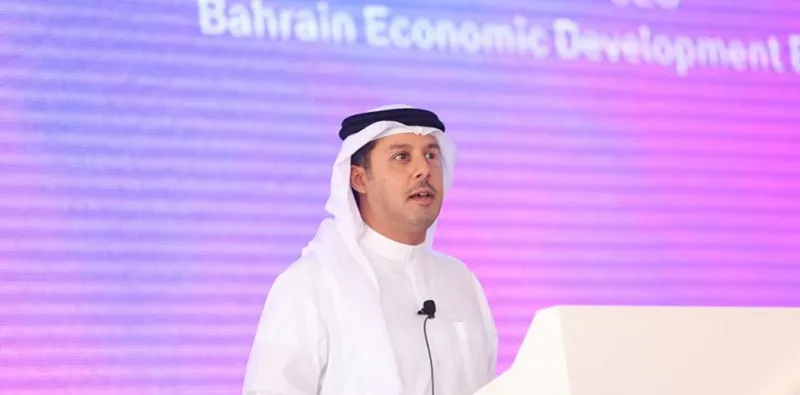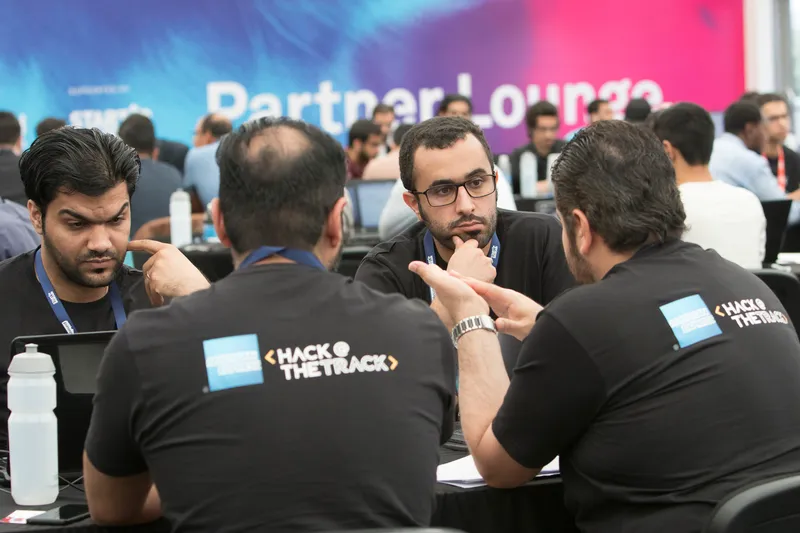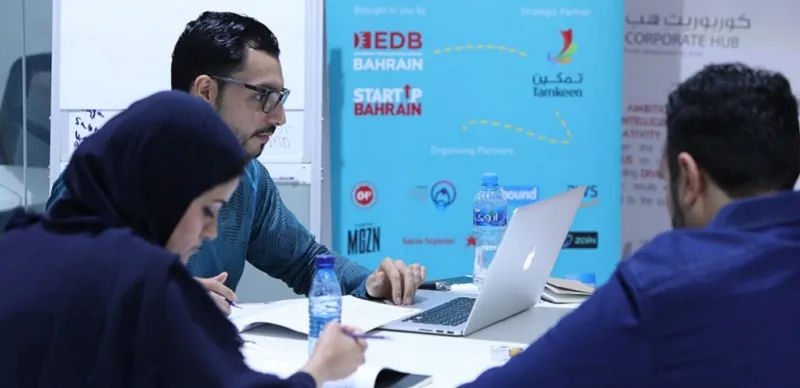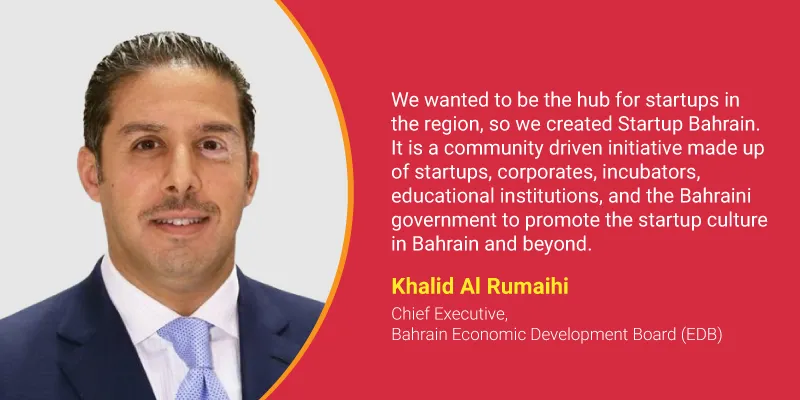Small but visionary: inside the startup ecosystem of Bahrain
Bahrain is keen to develop its own startup ecosystem by strengthening linkages with the counterparts in India, resulting in a mutually beneficial partnership.
Bahrain may be the smallest country in the Gulf region, but its ambitions sure aren't. In fact, the country has ambitious plans of building a vibrant startup ecosystem. It is keen to incubate a large number of startups, with the aim of turning into a gateway for the entire Middle East region.
The country’s investment promotion agency Bahrain Economic Development Board’s (EDB) Chief Executive Khalid Al Rumaihi tells YourStory that its liberal policies and stronger connect with India will put the country on an upward trajectory.

Bahrain Economic Development Board’s (EDB) Chief Executive Khalid Al Rumaihi
Edited excerpts of the full interview below.
YourStory: How does EDB view the overall startup scenario in Bahrain?
Khalid Al Rumaihi: The Middle East is facing a challenge when it comes to job creation. The World Bank estimates 80 million jobs are needed in this region to cater to future generations graduating from schools. Bahrain is at the heart of this challenge, which is why the EDB is not only looking at attracting foreign direct investment (FDI) but also creating quality jobs in Bahrain.
When looking at the graduates, we also have to look at those who create jobs for themselves and others. Small and medium enterprises (SMEs) and entrepreneurs benefit in Bahrain since it is a small country, which allows these startups and SMEs to first test their products or services and from there, scale beyond borders. For a small business based in the Gulf Cooperation Council (GCC), they’ll find that it is quite easy to scale very quickly from Bahrain to Kuwait, Saudi Arabia, Egypt, and so on.
We wanted to be the hub for startups in the region, so we created Startup Bahrain. It is a community-driven initiative made up of startups, corporates, incubators, educational institutions, and the Bahraini government to promote the startup culture in Bahrain and beyond.
We looked at all the pillars that a startup ecosystem would need to thrive and began working heavily on each pillar. One of those pillars is regulation, and we introduced several new initiatives and laws to enhance the ecosystem for startups.

For example, we reduced the minimum capital requirement from 50,000 Bahraini Dinar to 100 Bahraini Dinar and introduced a new bankruptcy law to allow entrepreneurs to fail and start again.
We are the first country in the region to have a nation-wide cloud-first policy, which will allow the government to provide services more efficiently and at a lower cost.
Shortly after, came along the data protection law modelled after global practices.
The Central Bank of Bahrain introduced a regulatory sandbox for fintech startups and has created a dedicated fintech unit. An online commercial registration system, Sijilat, was created to allow entrepreneurs to set up a business without having to leave the comfort of their own home, to the point where they are able to finalise registrations in a few hours.
Another pillar we looked at is ensuring availability of funding for startups. If I’m going to be an entrepreneur, I need capital and access to funding, and so we are building a venture capital industry here.
We looked at examples from around the world, including in India, and created a fund of funds (Al Waha FoF). To this day, 45 percent has already been allocated across five funds, four of which are technology focussed and one fintech.

Also read: The Bahrain and Indian fintech ecosystems: what each can learn from the other
YS: What about the availability of talent in Bahrain?
KAR: Of course, the most critical pillar, but probably the most challenging, is talent. Bahrainis are known for their strong work ethic and skills in a number of fields. That being said, there’s always more that can be done to further upskill the workforce, especially in non-traditional sectors and jobs of the future.
Our goal is for both Bahraini men and women to be the first choice of employees in highly technical fields, including programming, coding, Industry 4.0, and fintech.
Amazon Web Services (AWS) has come to Bahrain and has set up their AWS Educate programme, which saw a large number of young Bahrainis sign up for – even more than in India and China.
Additionally, we are working with Udacity, Polytechnic University, and Tamkeen (the Kingdom’s labour fund), to develop local talent as it is a very crucial part of the ecosystem. To give you an idea, Tamkeen has invested a total of $440 million in the private sector and a total of 4,000 Bahrainis trained.
Also read: Why the Middle East is putting the focus on technology and innovation
YS: What are the plans of EDB to promote startups in Bahrain?
KAR: We will continue to focus on developing the core pillars that enable a startup ecosystem. We are also hoping to develop closer links to global startup hubs. In fact, just last December, we signed an MoU with the government of Maharashtra to provide a framework of cooperation around the promotion of fintech in their respective markets.
India has a thriving startup community and Bahrain could be the gateway to the Gulf for those businesses.
Additionally, there has been a number of recent initiatives that place Bahrain ahead in the region. The Central Bank of Bahrain recently issued regulations around open banking, crypto-assets, and robo-advisory. The move towards open banking will gather pace, bringing greater personalisation and the release of vast new data sets.
In the Gulf, fintech startups are expected to attract $2 billion in private funding over the next 10 years, compared to $150 million over the previous decade. We are already seeing global interest in the regulatory sandbox, with a total of 29 companies, of which two are from India.
The graduate, Tarabut Gateway, is a technology-based innovative open banking solution providing connectivity to banks to assist their customers in accessing account information across different banks on a single platform. Rain, the second graduating company, is the first sharia-compliant crypto-currency exchange in the Kingdom.

Also read: Despite many challenges, women entrepreneurs thrive in the Middle East
YS: As the smallest country in the Gulf region, how is Bahrain differentiating itself?
KAR: Bahrain is small, but small is beautiful. We need to be agile; we need to be quick; we need to provide a boutique service. We have the potential to continue to play a role as an entryway for people to access this wider opportunity. Nobody is going to come to Bahrain for our market size.
Just like Singapore and Hong Kong became dynamic, forward-thinking, agile, and quick-moving countries, Bahrain’s private sector approach to business -- what we call the 'Team Bahrain approach' where public and private sectors from policymakers to young entrepreneurs work together -- is the key to our success.
That’s where we differentiate ourselves.
YS: What will be the key focus areas for EDB with regard to startups? What are the future plans of EDB to enhance the scope or influence of startups in Bahrain?
KAR: At the EDB, we continue to focus on enhancing the business environment in Bahrain to suit startups and multinationals alike.
We focus on a number of sectors where Bahrain has competitive advantages and where we’re seeing true opportunities for investment.
It is important to mention that each of those sectors has a technology component, transforming traditional sectors to non-traditional sectors through disruptions (such as fintech in financial services and Industry 4.0 in manufacturing).
At EDB, we focus on financial services, ICT, tourism, manufacturing, transport and logistics, real estate, and healthcare.
With regards to startups, we are open to new and innovative ideas and companies that can disrupt the sectors we are targeting, including edtech, healthtech, and fintech. In fact, Bahrain just welcomed, Estater, its first proptech application that is a game-changer in the real estate industry.

YS: Would EDB be interested in having strong linkages with the startup ecosystem in India. If so, what are the plans?
KAR: Most definitely. There are already strong historical links between India and Bahrain. The population of Bahrain is just 1/1000th the size of India’s, but a large proportion of Bahraini residents – roughly a third – are Indian. This has helped to create a ‘Bahrain-India Business Corridor’, which accounts for bilateral trade worth more than $1 billion per year.
We continue to see an abundance of opportunity from the subcontinent, especially among Indian startups looking to expand their base to the Middle East in the financial services, technology, and ICT domains.
This was evident in our roadshow to Mumbai last year, and in the recent delegation from India that attended Startup Bahrain Week. A total of 37 delegates participated in the events of that week and represented diverse industries.
Also read: OYO enters Saudi Arabia; to generate jobs for over 5,000 citizens by 2020







